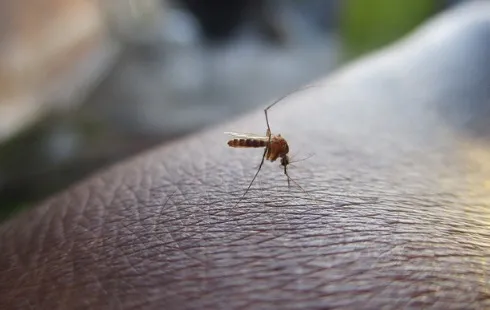
How Digital Entertainment Platforms Are Growing Among German-Speaking Online Audiences
Section: Arts
 Recent reports indicate a significant increase in dengue fever cases throughout the Americas, with health officials attributing this surge to the ongoing effects of climate change. The alarming rise in infections has raised concerns among public health authorities, who warn that the changing climate is creating more favorable conditions for the transmission of this mosquito-borne disease.
Recent reports indicate a significant increase in dengue fever cases throughout the Americas, with health officials attributing this surge to the ongoing effects of climate change. The alarming rise in infections has raised concerns among public health authorities, who warn that the changing climate is creating more favorable conditions for the transmission of this mosquito-borne disease.
Dengue fever, characterized by high fever, severe headaches, joint and muscle pain, and rashes, is transmitted primarily by the Aedes aegypti mosquito. This mosquito thrives in warm, humid environments, conditions that are becoming more prevalent as global temperatures rise due to climate change. Experts note that as temperatures continue to increase, the range of these mosquitoes is expanding, leading to higher incidences of dengue in areas previously unaffected.
The World Health Organization (WHO) has reported that the Americas have seen a record number of dengue cases this year, surpassing previous highs. In several countries, the healthcare systems are under strain as they deal with the influx of patients suffering from the illness. Authorities are urging communities to take preventive measures, such as eliminating standing water where mosquitoes breed and using protective clothing and insect repellent.
Health experts emphasize the need for increased public awareness and education about dengue fever and its transmission. They advocate for community engagement in mosquito control efforts and call for governments to enhance their surveillance and response strategies to manage outbreaks effectively.
In addition to the immediate health implications, the economic impact of rising dengue cases is also a concern. Increased healthcare costs and loss of productivity due to illness can strain local economies, particularly in regions heavily reliant on agriculture and tourism. As dengue fever continues to pose a public health challenge, the integration of climate resilience into health planning is becoming increasingly important.
This situation highlights the broader implications of climate change on public health, with experts warning that without concerted global efforts to address climate issues, the frequency and severity of dengue outbreaks are likely to increase. The growing body of evidence linking climate change to health risks underscores the urgent need for action to mitigate its effects.
As nations prepare for future challenges, health authorities are urged to prioritize research on climate-related health impacts, enhance disease surveillance systems, and implement robust public health strategies to combat the rise of dengue and other climate-sensitive diseases.

Section: Arts

Section: Travel

Section: Arts

Section: Arts

Section: Arts

Section: Fashion

Section: Politics

Section: Fashion

Section: News

Section: Business
Both private Health Insurance in Germany and public insurance, is often complicated to navigate, not to mention expensive. As an expat, you are required to navigate this landscape within weeks of arriving, so check our FAQ on PKV. For our guide on resources and access to agents who can give you a competitive quote, try our PKV Cost comparison tool.
Germany is famous for its medical expertise and extensive number of hospitals and clinics. See this comprehensive directory of hospitals and clinics across the country, complete with links to their websites, addresses, contact info, and specializations/services.
Join us at the Kunstraum in der Au for the exhibition titled ,,Ereignis: Erzählung" by Christoph Scheuerecker, focusing on the captivating world of bees. This exhibition invites visitors to explore the intricate relationship between bees and their environment through various artistic expressions,...



No comments yet. Be the first to comment!